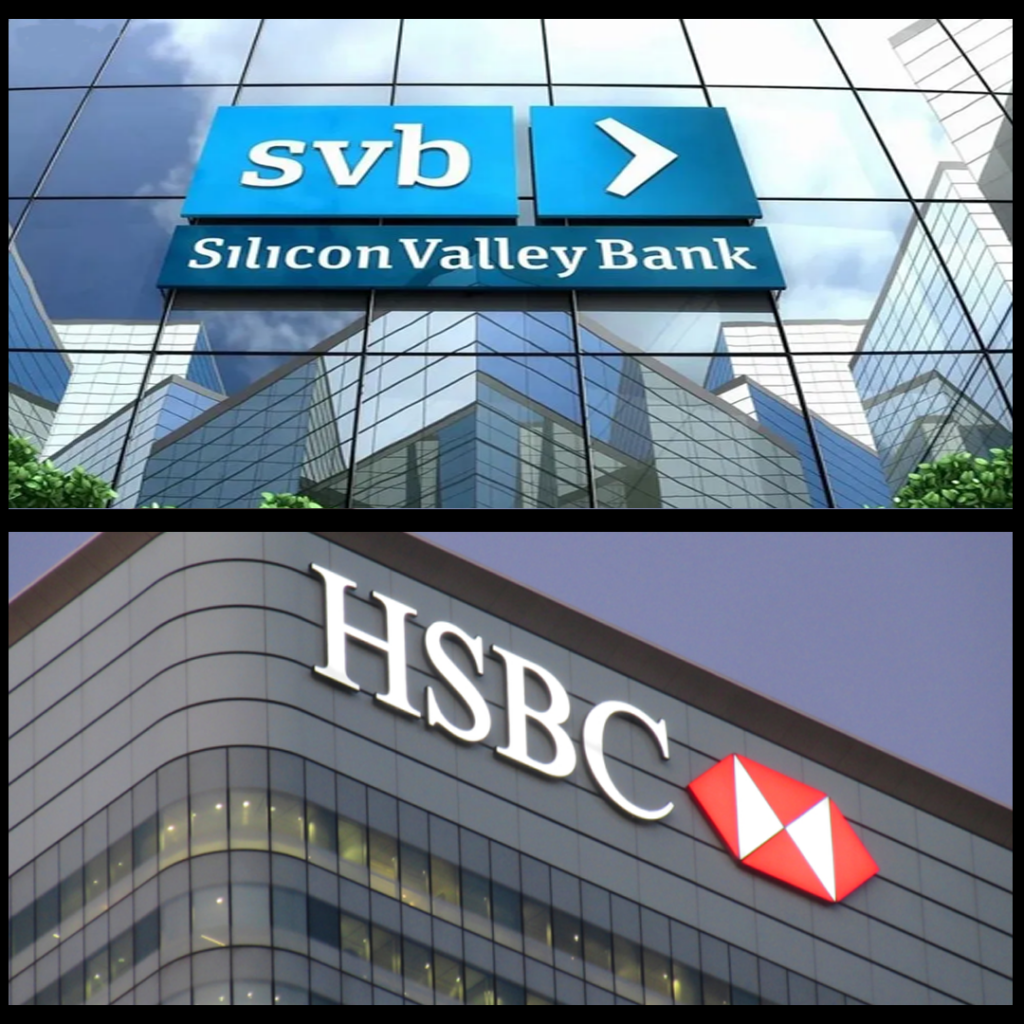Digital Zeitgeist – Under A Rescue Package HSBC Will Purchase Silicon Valley Bank UK For £1
The United Kingdom’s government has worked out a last-minute arrangement for HSBC to purchase the UK operations of Silicon Valley Bank, sparing thousands of British technology firms and investors from suffering significant losses in the wake of the worst bank failure since 2008.
After a run on the lender that was initially sparked by fears over a multibillion-pound shortfall on the US parent company’s balance sheet, the takeover will override the Bank of England’s initial decision to place SVB UK into insolvency. The run on the lender was initially sparked by fears over the shortfall. On Friday, officials in the United States took possession of the bank’s assets and then closed the business.
As authorities rushed to protect the financial well-being of SVB UK’s 3,500 customers, overnight discussions took place between Downing Street, the Bank of England, and HSBC bosses including the chief executive of the bank, Noel Quinn. These discussions led to the acquisition, which only cost HSBC one pound. Among those clients were venture capital investors and hundreds of tech firms, all of which dreaded the possibility of losing their deposits because they feared going out of business.
“This morning, the government and the Bank of England facilitated a private sale of Silicon Valley Bank UK to HSBC. Deposits will be protected, with no taxpayer support. I said yesterday that we would look after our tech sector, and we have worked urgently to deliver that promise,” the chancellor, Jeremy Hunt, said on Twitter.
The Bank of England said in a statement that the private deal would “stabilise” SVB UK, which made pre-tax profits of £88m last year and held about £6.7bn in deposits. It would also “minimising disruption to the UK technology sector and supporting confidence in the financial system,” the central bank said.
The HSBC chief executive, Noel Quinn, said: “This acquisition makes excellent strategic sense for our business in the UK. It strengthens our commercial banking franchise and enhances our ability to serve innovative and fast-growing firms, including in the technology and life-science sectors, in the UK and internationally.”
An emergency fund that could provide a cash lifeline to support startups was one of the many options that the authorities had been considering in order to assist SVB UK customers in paying wages and suppliers; other options included government-guaranteed loans for the sector, which were comparable to the loans that were made available to companies during the Covid crisis; however, it is believed that the authorities preferred a private deal.
It came after a tense period of three days, during which Rishi Sunak had been locked in talks over the weekend with the governor of the Bank of England, Andrew Bailey, and Hunt, who had warned that the technology and life sciences sectors were at “serious risk” as a result of the collapse of the bank.
While analysts said there was little chance of contagion across the banking sector – given that the biggest banks serve a wider range of customers and have plenty of capital – tech startups and investors were worried about the ripple effects for the sector. A group of more than 200 tech executives warned in an open letter to Hunt over the weekend that the loss of deposits had the potential to cripple the industry, with many businesses at risk of falling into insolvency overnight.
In order to have a better understanding of the gravity of the situation at SVB, the Treasury Department held an urgent meeting on Saturday with representatives from investor groups and industry lobbying organisations.
Dom Hallas, the executive director of the startup lobby group Codec, said “the government deserves huge credit. From the very top, to HM Treasury who understood the challenge and gripped it, to the huge number of civil servants who have likely not slept since Friday. They have saved hundreds of the UK’s most innovative companies today.”
After a difficult 24 hours, Silicon Valley Bank, which was the 16th largest lender in the United States, failed and had its assets confiscated by US authorities on Friday. With a rise in the number of withdrawals from clients in the technology industry, who have seen funding dry up in recent months, the lender had been attempting to seek emergency liquidity in order to plug a hole in its finances that was close to $2.0 billion (£1.7 billion).
Thereafter, on Friday night, the Bank of England issued an order that put its UK subsidiary into insolvency. This put businesses in danger of losing practically all of their cash reserves. Just £85,000 of customers’ deposits would have been covered by the Financial Services Compensation Scheme, or £170,000 for joint accounts; as a result, a significant number of SVB UK’s customers were at risk of suffering significant losses in the absence of action by the government.
It came at the same time as the United States launched its own emergency support package to combat the consequences from the failure of Silicon Valley Bank a week earlier. On Monday, clients of SVB will be able to retrieve all of the cash that they have deposited, thereby removing the $250,000 limit that was placed on the safety of their deposits. The agreement was reached at the same time as authorities in New York were winding up Signature Bank, which was one of the primary banks for the cryptocurrency business. Depositors at Signature Bank will also avoid losses as a result of the agreement.
Shareholders and some holders of unsecured debt will both be wiped out, and other banks will be required to fill any gaps in the industry-funded programme. Shares will also be wiped out. In addition, US authorities are providing a backup to lenders who want immediate funding owing to the uncertainty of the market by issuing a pool of inexpensive loans worth $25 billion to other US banks.
online sources: theguardian.com, bankofengland.co.uk

